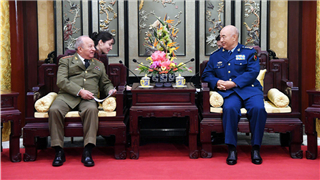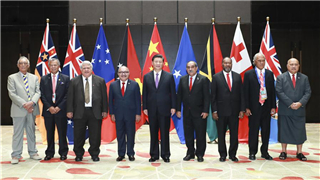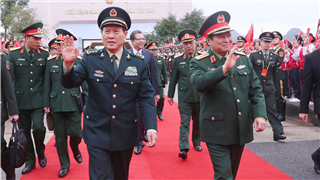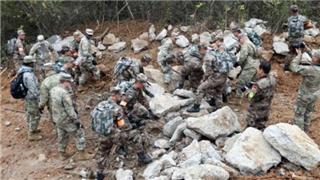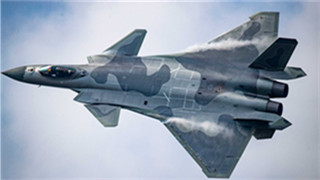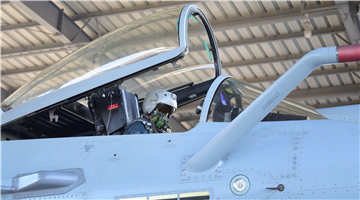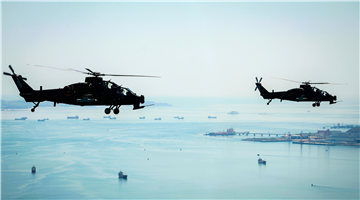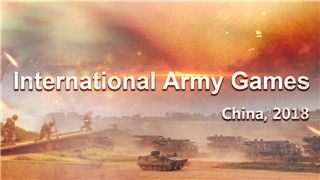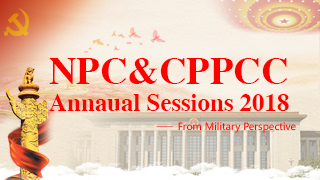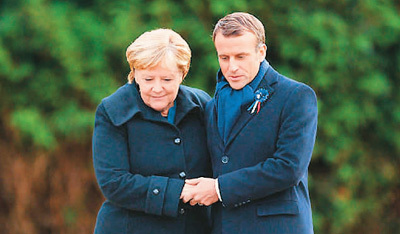
By Sun Shaofeng and Chen Xi
Recently, French President Emmanuel Macron called for the creation of a “European army” when participating in international events marking the 100th anniversary of the end of World War I. German Chancellor Angela Merkel was supportive in her speech at the European Parliament on November 13. The European security and defense integration process has once again triggered world attention.
Steady advancement in defense cooperation
“We must strengthen our self-defense capabilities...Only by building a true European army can Europe defend itself.” Macron’s strong tone and firm attitude quickly led to Merkel’s response, who also called for establishing European Security Council in charge of European defense and security policies. “The days when we had to rely on others unconditionally have gone. If we want to protect Europe, we must be the masters of our own fates.”
Reuters reported that after President Macron called for the establishment of a “European army”, the European Commission also said that EU must form its own “defense system”, and that one day it might build its own army. European Commission spokesman Margaritis Schinas pointed out that Europe’s defense cooperation will start from defense procurement, research and development (R&D), and military peacekeeping missions, thus creating a “more meaningful and confident defense system”.
In the past few years, EU defense integration has made significant progress under the advocacy and promotion of France and Germany.
In November 2016, the European Commission proposed the European Defense Action Plan, setting up a European Defense Fund of more than €5 billion a year to promote R&D and industrial development in the field of defense.
In December 2017, 25 member states of EU signed a joint agreement on “permanent structural cooperation” in the field of defense. Based on this framework, 17 defense cooperation projects were initially launched, covering military training, cyber security, logistic support, disaster relief, and strategic commanding.
In June 2018, nine countries including France and the United Kingdom signed Letter of Intent concerning the development of the European Intervention Initiative (EI2) and promised to build a joint military intervention force to take a substantive step in joint European defense cooperation.
“After the Cold War, Europe realized that the alliance relationship between Europe and the United States has undergone great changes. European side is willing to adopt the concept of strategic independence, begins to emphasize the development of its own capabilities, and avoids total dependence on the alliance relations,” said Cui Hongjian, director of the Department for European Studies of China Institute of International Studies. He also pointed out that European defense cooperation has been moving forward year by year since 2016.
Divergences within the alliance
BBC analyzed that there are two reasons for Macron’s call for establishing “Europe’s own army”. One is that he hopes to build a stronger EU force; the other is his concern about US President Donald Trump’s withdrawal from various treaties.
“Europe needs to promote European integration through security and defense integration. In recent years, integration in economy, trade, and finance has encountered great resistance. On security issues, there might be hopes for breakthroughs,” said Cui Hongjian.
He added that under the world context of multi-polarization gaining its momentum and intense competition among great powers, it’s hard for the original European development model to fit in; its sole emphasis on soft power can’t make it avoid security threats; and Brexit weakens EU’s overall security capacity, making defense cooperation especially essential.
Although the cooperation shows initial sincerity, there are still a few hindrances unavoidable at the operational level.
“It is a good thing for EU to make more efforts in defense, but it should never weaken transatlantic relations. NATO is still the cornerstone of European security,” said NATO Secretary General Jens Stoltenberg in a forum, quoted by AFP on November 12.
Cui Hongjian argued that, “The vast majority of NATO’s European allies are within the framework of NATO in terms of intelligence, equipment, or military commanding system. Some member states have no confidence in establishing an independent EU defense system, and are more accustomed to relying on NATO for security protection. How to deal with two possibly competitive defense systems? It is hard for the countries to answer in a short term.”
Cui believes that it is difficult for EU countries to have common security threat targets due to their different geographical locations and surrounding diplomatic relations. Whether or not to take action and in which direction to progress will be the main differences within the defense alliance.
The shadow of the debt crisis has also made some European countries unable to do anything. Their main focus is to develop the economy and improve people’s livelihoods. BBC commented that no European country or organization has the economic power to build a military force comparable to that of the US, and EU alone may not be able to resist the Russian threats they worry about.
In addition, as the “bellwether” of EU, France and Germany also have their own ambitions on defense issues. The two countries have differences in concepts, goals, and other fields, which will be fully exposed when they encounter specific problems.
Cui pointed out that France intends to make use of the European platform to consolidate its hard power to a certain extent. Therefore, making foreign intervention an important indicator of security and defense touches Germany’s red line. After World War II, Germany has been constantly emphasizing peace in law and politics and hopes to promote cooperation from the perspective of European integration in terms of defense issues.
Trend of a multi-polar world
Analysts pointed out that Europe’s defense integration appeal is an objective manifestation of the world’s evolution towards multi-polarization, conducive to maintaining the strategic balance of the world, while it may also bring uncertainties to NATO. Some member states may compromise their relevant commitments, leading to the marginalization of NATO.
Some analysts said that the US has no intention of continuously playing the role of “world police”, which is an inevitable phenomenon in the world’s transition to multi-polarization, but not a temporary phenomenon brought about by Trump himself.
According to RT, Russian President Vladimir Putin said that Russia’s stance on building a “European army” is “consistent with France” to a certain extent, and that “this is a positive process which can strengthen the world’s multi-polarization trend.”
The Guardian and other media believe that, for staunch enthusiasts of European common defense, the UK which possesses the top armed forces in Europe has not been an activist for the building of a real “EU army” from the very beginning. The UK’s thorough divorce from EU may be an important opportunity to establish an EU army.
It is time for the European continent to guarantee its own security, reported German weekly newspaper Die Zeit. According to AFP, EU will substantially increase its defense budget after 2021 and plan to appropriate €13 billion for the R&D of new military equipment within seven years.
From declaration to action, the EU defense cooperation still has a long way to go. The member countries must not only take advantage of the trend, dispel differences, and make breakthroughs, but also shoulder their responsibilities and safeguard world peace and stability.
In the view of Cui Hongjian, “Europe is currently in a period of strategic confusion. In the long run, the goal of defense cooperation is to respect multilateralism within the framework of the United Nations and meet the real needs of the international community. For example, it is unreasonable to rush to implement foreign intervention, and priority should be given to political and diplomatic solutions. If the unilateral foreign military intervention is done with a view to demonstrating security and defense capabilities, it may aggravate the already turbulent international and regional situations. ”
Cui believes that EU must be prudent in turning willingness into responsible actions, and in trying to balance soft and hard powers as well as avoiding stepping from one extreme to the other.
Disclaimer: The authors are Sun Shaofeng and Chen Xi. The article is published on People's Daily Overseas Edition. It is translated from Chinese into English and edited by the China Military online. The information, ideas or opinions appearing in this article are those of the author from People's Daily Overseas Edition and do not reflect the views of eng.chinamil.com.cn. Chinamil.com.cn does not assume any responsibility or liability for the same. If the article carries photographs or images, we do not vouch for their authenticity.
